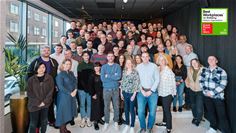Musk and Tesla face a fresh lawsuit alleging self-driving tech is a fraud
Elon Musk and Tesla have been hit with another lawsuit claiming they mislead the public over controversial self-driving features in order to inflate the stock price.
Attorneys from Pomerantz LLP level four sweeping allegations in its case filed with the U.S. court for the Northern District of California: 1) Tesla oversold the technology’s capabilities, 2) it fostered a serious threat of accident and injury contrary to company claims, 3) it exposed investors to increased regulatory risk and reputational harm, and finally 4) it duped investors over the past four years.
“Defendents made materially false and misleading statements regarding the company’s business, operations and prospects,” it said in a statement on Monday.
“As a result of Defendents’ wrongful acts and omissions, and the precipitous decline in the market value of the company’s common stock, Plaintiff and other Class members have suffered significant losses and damages.”
The suit also directly names Musk as well as Zach Kirkhorn and Deepak Ahuja—the current and former finance chiefs of Tesla, respectively—as having “artificially inflated” the stock, making them party to fraud prohibited under the Securities Exchange Act of 1934.
“By virtue of their positions at Tesla, Defendants had actual knowledge of the materially false and misleading statements and material omissions alleged herein and intended thereby to deceive,” it states, “or, in the alternative, Defendants acted with reckless disregard for the truth.”
Musk has repeatedly argued the technology underpins Tesla stock price
This is now the second class action lawsuit filed against Tesla over its optional $15,000 Full Self-Driving (FSD) feature.
In September, Tesla was already hit with a claim filed by legal firm Cotchett, Pitre & McCarthy. The carmaker has sought to dismiss the case, arguing in a November court filing that falling substantially short of Musk’s repeated promises year after year cannot legally be deemed fraud. Instead FSD must be considered merely a failure to deliver on a “long-term aspirational goal”.
Unlike the previous litigation that represents disgruntled Tesla car owners, though, the new case that was submitted acts on behalf of shareholders that invested in the company under presumed false pretenses.
Corporations have often complained about the rise of an emerging business model called “litigation financing” under which law firms launch what they argue are spurious lawsuits funded upfront by third-party investors that receive a portion of the awards in exchange.
This enables plaintiffs to pursue claims that otherwise might prove too expensive for law firms. Critics however argue they can abuse the broad remit of discovery in an effort to go digging for virtually any damaging information law firms can then use to extract an out-off-court settlement.
Tesla is certainly a tempting target for law firms.
Not only does it possess a war chest stuffed with $22.2 billion in cash, but the software engineer in charge of FSD recently confessed a 2016 promotional video had been deliberately staged at Musk’s behest.
Musk furthermore admitted on two separate occasions that delivering on his promise of transforming dormant Tesla cars into fully-functioning robotaxis earning their owners fares worth $30,000 a year was fundamental to his company’s investment case.
First he said in January 2021 that FSD alone justified a trillion-dollar valuation for Tesla thanks to an anticipated incremental profit of $50 billion annually. Last June he then argued the software is “really the difference between Tesla being worth a lot of money and being worth basically zero.”
Tesla Investor Day looms
Unfortunately for Tesla, recent headlines over FSD have largely provided fodder for law firms looking to lodge damage claims.
Apple co-founder Steve Wozniak blasted the Tesla CEO as dishonest for cheating his customers over FSD promises that never came true.
Then a 30-second Super Bowl ad attacked FSD as dangerous and even Tesla’s former co-founder warned the technology was “too immature” for use on public roads.
Finally, this month virtually every Tesla equipped with FSD in the United States has been recalled, forcing Tesla to pause the sale of the $15,000 software feature until concerns voiced by the National Highway Traffic Safety Administration (NHTSA) have been addressed.
If Tesla’s mounting legal problems are at all worrying investors, it’s not reflected in the stock price of late.
While the Nasdaq has rallied 11% since the start of this year due to optimism that any U.S. recession will prove a shallow one, Tesla has almost doubled.
On Monday it climbed a further 5.5% ahead of tomorrow’s crucial Investor Day, where Musk will finally present the third part of his Master Plan.
It’s expected to provide key details as how Tesla can produce 20 million vehicles annually by the end of this decade—more cars than Toyota and Volkswagen put together—and how Musk’s other companies like SpaceX can help.
Learn how to navigate and strengthen trust in your business with The Trust Factor, a weekly newsletter examining what leaders need to succeed. Sign up here.


